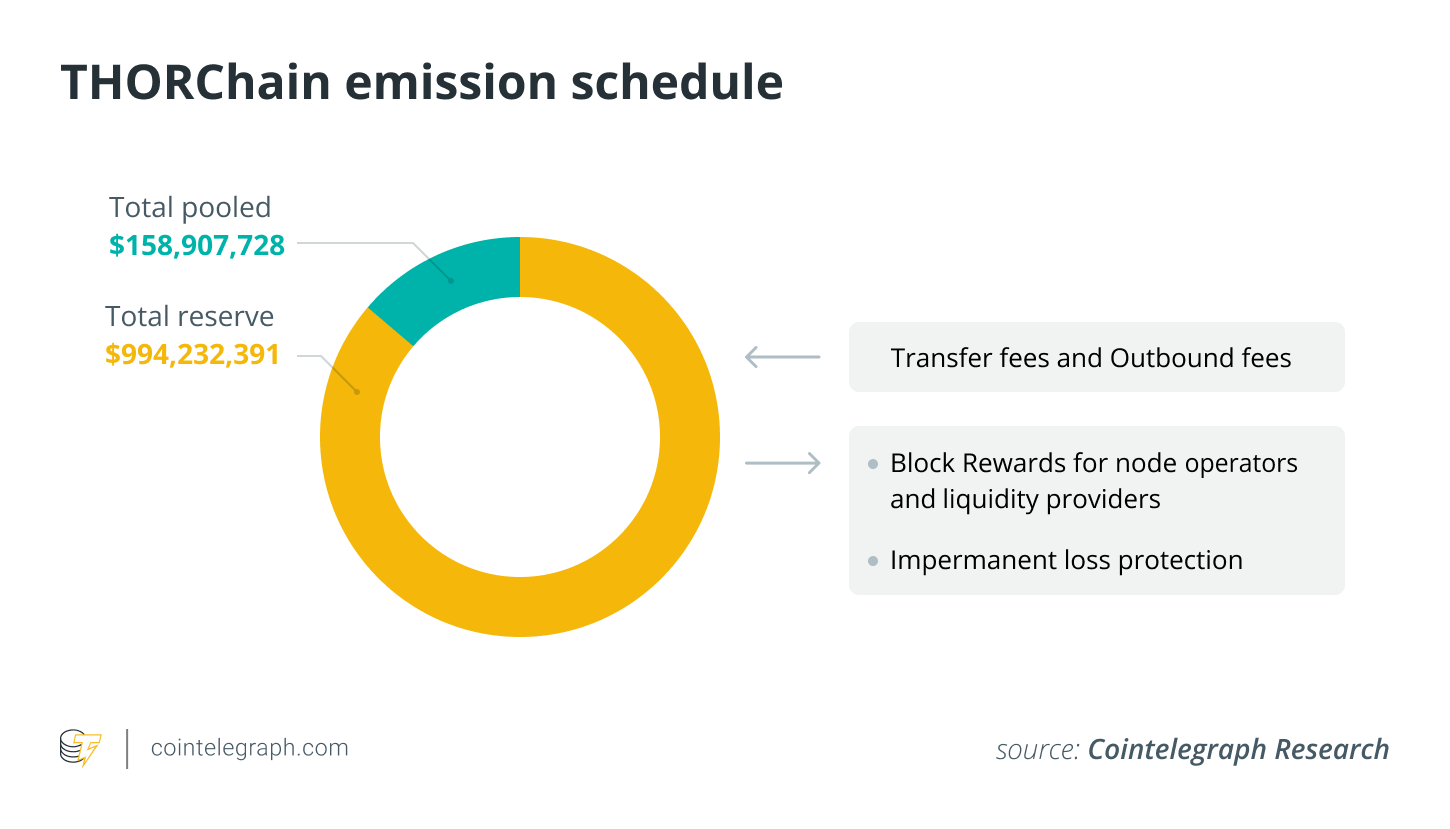A THORChain synth is unique: Backed by 50% of the underlying asset and 50% of RUNE instead of 100% of the actual asset.
THORChain (RUNE) has appreciated nearly 41% in the past seven days, according to the data from Cryptox Markets Pro, and its recent price action is even leading the entire crypto market in the first quarter of 2021. Its mainnet launch, which was originally slated last year, is one of the main factors that led to its recent price surge. But, the other factor that provided added momentum is the integration of synthetic assets to its network. Why was this such a huge deal, and what are its implications for THORChain going forward?
THORChain is often compared to Uniswap since it provides users a way for traders to swap different tokens. The only difference is THORChain lets users trade layer-1 coins in a decentralized manner, whereas Uniswap is limited to only the tokens that are of the ERC-20 standard. Users can essentially swap their Bitcoin (BTC) for Ether (ETH) on THORChain without using a centralized exchange, and it claims to have processed more than 1.64 million transactions since inception.
The addition of synthetic assets to THORChain is expected to grow the network usage. Synthetic assets are, of course, virtually tokenized derivatives wherein it mimics the value of another asset. Synthetic assets, or synths, track real-world assets like stocks, commodities or even cryptocurrencies and traders use them for various reasons such as taking advantage of lower fees, performing faster transactions and access to 24/7 trading, among others.
THORChain synths under the hood
THORChain allows users to mint synthetic versions of cryptocurrencies ranging from BTC to Aave (AAVE). To do this, users add either RUNE or the actual crypto asset to a THORChain liquidity pool. THORChain’s synths are pretty different from other synthetic assets, as synths from THORChain are not backed solely by the underlying asset and don’t require a high collateralization ratio.
For instance, Terra (LUNA) Mirror protocol, another platform for minting synths, has a 150% collateralization ratio. A THORChain synth, on the other hand, is backed by a liquidity pool that contains 50% of RUNE and 50% of the underlying asset. This is done through collateralization via pool ownership.
No impermanent loss
One of the main advantages boasted by THORChain is it removes impermanent loss, achieved by its protocol structure. THORChain maintains a reserve pool of RUNE tokens that it extracts from to pay block rewards for node operators and liquidity providers. It is also the same pool from which the system draws out the tokens needed to offset any difference in the synthetic asset’s exact value to that of the actual asset upon redemption, preventing impermanent loss.
Liquidity providers will have linear impermanent loss protection for 100 days, meaning that it incurs 1% protection daily until it reaches a full 100% coverage. At the time of writing, the reserve holds nearly $1 billion worth of RUNE, though it was actually past the billion-dollar mark a few months ago. The reserve is depleted from such token outflows but is replenished by network fees such as transfer fees and outbound fees (the gas cost of each chain multiplied by three).

How synths benefit users
Aside from the trading advantages mentioned earlier, THORChain synths are also cheaper to exchange than layer-1 assets while having a 50% reduction in swap fees when swapping asset to synth, synth to asset or synth to synth. But, perhaps its main selling point on offer is an uncomplicated and more lucrative way to yield farm. THORChain also has in its pipeline the capability for synth holders to earn a return by simply locking their assets in a vault. This makes the process approachable to newer participants, as they would no longer need to understand the concept of liquidity pools and the risks of impermanent loss.
THORChain has also integrated with Terra, catalyzing RUNE’s initial March rally. Lending and borrowing are also coming to the THORChain ecosystem by June 17. This is why many have been bullish to even call an $11.50 target for RUNE. Can RUNE maintain its rally going to the second quarter?
Cryptox’s Market Insights Newsletter shares our knowledge on the fundamentals that move the digital asset market. The newsletter dives into the latest data on social media sentiment, on-chain metrics and derivatives.
We also review the industry’s most important news, including mergers and acquisitions, changes in the regulatory landscape, and enterprise blockchain integrations. Sign up now to be the first to receive these insights. All past editions of Market Insights are also available on Cryptox.com.



